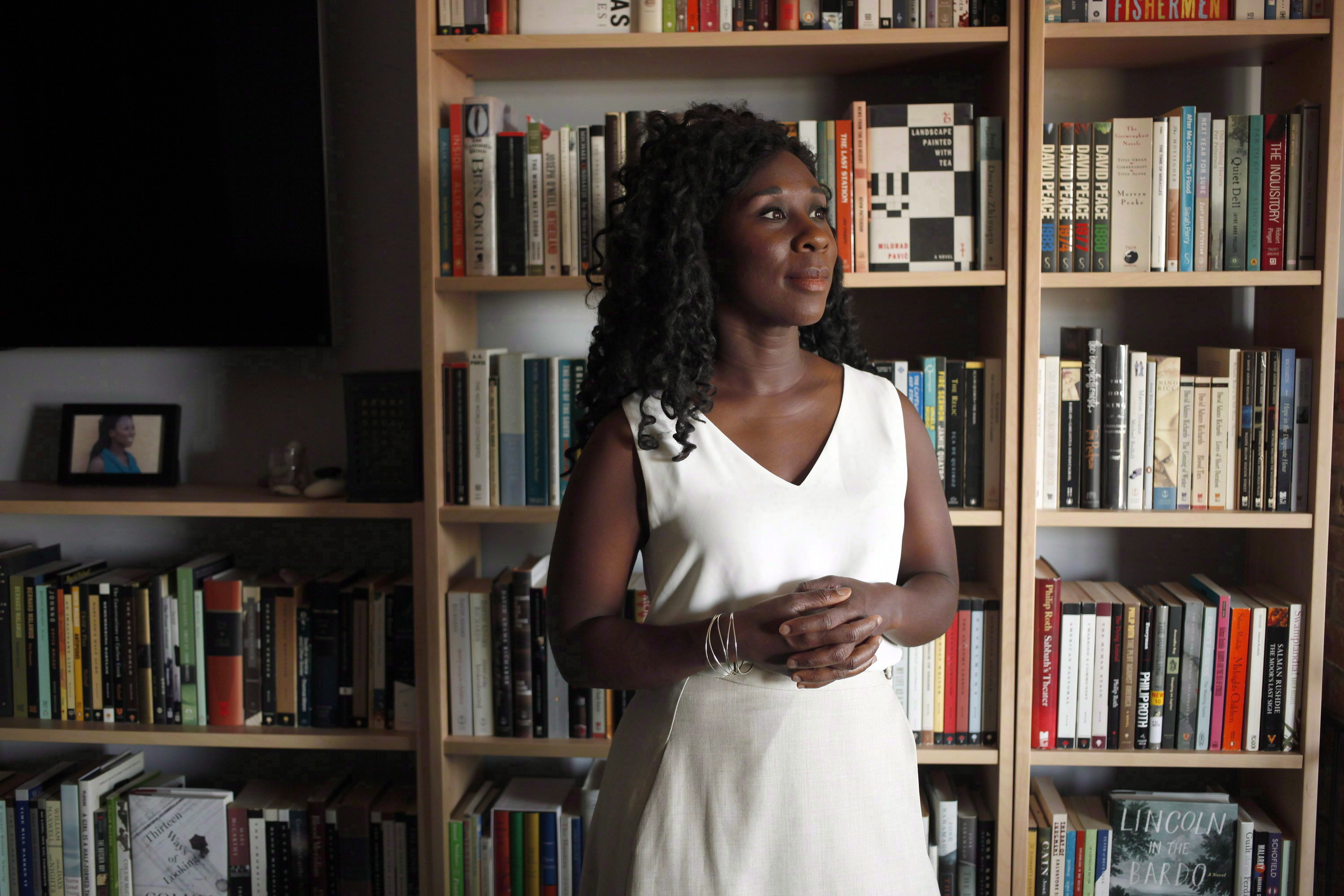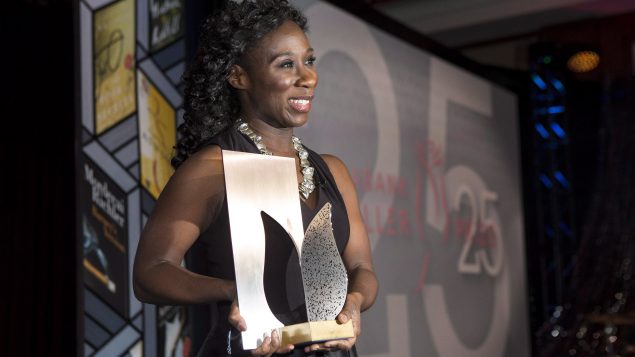Esi Edugyan was shocked by her win last night, admitting she had no speech prepared thinking it most unlikely she’d win again. But she did.
ListenHer novel, Washington Black, was chosen by the five-member jury, the best of the five finalists in Canada’s most lucrative literary competition.
“I am profoundly Canadian”
The Scotiabank Giller Prize comes with a $100,000 (CDN) and the exponential book sales that will come with the publicity. This is the twenty-fifth anniversary of the competition.
‘Washington Black’ is guaranteed to be top of the list for many book clubs and under the Christmas trees in gift exchanges this year.
In a red-carpet interview last night, as she entered Toronto’s Ritz Carlton Hotel, before the gala, she mused, frankly, that were she to win, the money would probably go toward paying down the debt incurred after a renovation on their home.

Esi Edugyan, photographed at home in Victoria, British Columbia, on August 27, 2018. THE CANADIAN PRESS/Chad Hipolito
Edugyan is married to Canadian poet and novelist, Steven Price, and lives with their two children in Victoria, the capital city of British Columbia.
Esi Edugyan won for her second novel, Half-Blood Blues, in 2011, and that novel, like her latest was nominated for the Man Booker Prize.
In an interview on CBC Radio’s, Sunday Edition, Edugyan told host Michael Enright, about her complicated sense of identity growing up in Calgary, Alberta.
She has said, “home is not a birthright, it’s an invention”.
Despite being born and raised in the city, by her immigrant parents from Ghana, she said there were challenges in a high school of 1,000 students being one of only two black students perhaps.
And the family did endure some awful racist experiences, like having garbage thrown at their vehicle.
She said, however, that after spending her twenties “being a wanderer” travelling in Europe, she came to a realization.
“I am profoundly Canadian” she told Enright. But she further clarified, that she’s a “western Canadian”.
(With files from CBC)







For reasons beyond our control, and for an undetermined period of time, our comment section is now closed. However, our social networks remain open to your contributions.